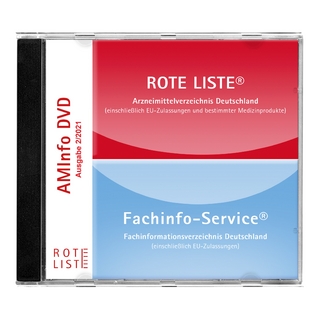
Attrition in the Pharmaceutical Industry – Reasons, Implications, and Pathways Forward
John Wiley & Sons Inc (Hersteller)
978-1-118-81958-6 (ISBN)
- Keine Verlagsinformationen verfügbar
- Artikel merken
Alexander Alex, Dr. rer. nat., is director of Evenor Consulting and has over 20 years experience as consultant and as director and research fellow in drug discovery in the pharmaceutical industry. C. John Harris, PhD, is the director of cjh Consultants and has a successful track record in drug discovery, research management, small company fund-raising and start-ups. Dennis A. Smith, PhD, is an independent consultant with a long track record in drug discovery and development with an emphasis on metabolism and safety. He has published four books, including Pharmacokinetics and Metabolism in Drug Design (1st and 2nd editions) and Reactive Drug Metabolites published by Wiley.
Introduction Alexander Alex, John Harris, Dennis Smith References 1. Attrition in Drug Discovery and Development Scott Boyer, Clive Brealey and Andrew M Davis 1.1 The Graph 1.2 The sources of attrition 1.3 Phase II Attrition 1.4 Phase III Attrition 1.5 Attrition in Phase IV 1.6 First in Class, best in class and the role of the payer 1.7 Avoiding Attrition 1.8 Good Attrition vs Bad attrition 1.9 Summary References 2. Compound Attrition at the Pre-Clinical Phase Cornelis E.C.A. Hop 2.1 Introduction: Attrition in Drug Discovery and Development 2.2 Target Identification, High Throughput Screening and Lead Optimization 2.3 Resurgence of Covalent Inhibitors 2.4 In Silico Models to Enhance Lead Optimization 2.5 Structure-Based and Property-Based Compound Design in Lead Optimization 2.6 Attrition Due to ADME Reasons 2.7 Attrition Due to Toxicity Reasons 2.8 Corporate Culture and Non-Scientific Reasons for Attrition 2.9 Summary References 3. Attrition in Phase I Dennis A. Smith and Thomas A. Baillie 3.1 Introduction 3.2 Attrition in Phase 1 Studies and Paucity of Published Information 3.3 Drug Attrition in not FIH Phase I Studies 3.4 Attrition in First in Human Studies due to Pharmacokinetics 3.5 Attenuation of Pharmacokinetic Failure 3.6 Phase I Oncology Studies 3.7 Toleration and Attrition in Phase I Studies 3.8 Target Occupancy and Go / No Go Decisions to Phase 2 Start 3.9 Conclusions References 4. Compound Attrition in Phase II/III Alexander Alex, C. John Harris, Wilma W. Keighley and Dennis A. Smith 4.1 Introduction 4.2 Attrition Rates - how have they changed? 4.3 Why do drugs fail in Phase II/III? Lack of efficacy, or marginal efficacy leading to likely commercial failure 4.4 Toxicity 4.5 Organisational Culture 4.6 Case studies for phase II/III attrition 4.7 Summary and conclusion References 5. Post-Marketing Attrition Dennis A. Smith 5.1 Introduction 5.2 On Target Pharmacology-Flawed Mechanism 5.3 Off Target Pharmacology, Known Receptor-An Issue of Selectivity 5.4 Off Target Pharmacology, Unknown Receptor-Idiosyncratic Toxicology 5.5 Conclusions References 6. Influence of the regulatory environment on attrition Robert T. Clay 6.1 Introduction 6.2 How the regulatory environment has changed over the last two decades. 6.3 Past and current regulatory attitude to risk analysis and risk management. 6.4 What stops market approval? 6.5 Impact of black box warnings. 6.6 Importance and impact of pharmacovigilance. 6.7 Prospects of market withdrawals for new drugs. 6.8 What are the challenges for the industry given the current regulatory environment? 6.9 Future challenges for both regulators and the pharmaceutical industry. 6.10 Conclusion References 7. Experimental Screening Strategies to Reduce Attrition Risk Marie-Claire Peakman, Matthew Troutman, Rose Gonzales and Anne Schmidt 7.1 Introduction 7.2 Screening Strategies in Hit Identification 7.3 Screening Strategies in Hit Validation and Lead Optimization 7.4 Screening Strategies for Optimizing Pharmacokinetics and Safety 7.5 Summary References 8. Medicinal Chemistry Strategies To Prevent Compound Attrition J. Richard Morphy 8.1 Introduction 8.2 Picking the right target 8.3 Finding starting compounds 8.4 Compound optimization References 9. Influence of phenotypic and target-based screening strategies on compound attrition and project choice. Andrew Bell, Wolfgang Fecke and Christine Williams 9.1 Drug discovery approaches: a historical perspective 9.2 Current Phenotypic Screens 9.3 Current targeted screening 9.4 Potential Attrition Factors 9.5 Summary and Future Directions References 10. In silico approaches to address compound attrition Peter Gedeck, Christian Kramer, Richard Lewis 10.1 In silico models help to alleviate the process of finding both safe and efficacious drugs 10.2 Use of in silico approaches to reduce attrition risk at the discovery stage 10.3 Ligand-based and structure-based models 10.4 Data Quality 10.5 Predicting model errors 10.6 Molecular properties and their impact on attrition 10.7 Modeling of ADME properties and their impact of reducing attrition in the last two decades 10.8 Approaches to modeling of toxicity 10.9 Modeling pharmacokinetics and pharmacodynamics, dose prediction 10.10 Novel in silico approaches to reduce attrition risk 10.11 Conclusion References 11. Current and Future Strategies for Improving Drug Discovery Efficiency Peter Mbugua Njogu and Kelly Chibale 11.1 General Introduction 11.2 Scope 11.3 Neglected diseases 11.4 Outsourcing strategies 11.5 Drug repositioning and repurposing 11.6 Future outlook References 12. Impact of investment strategies, organizational structure and corporate environment on attrition, and future investment strategies to reduce attrition Geoff Lawton 12.1 Attrition 12.2 Costs 12.3 Investment Strategies 12.4 Business Models 12.5 Portfolio Management 12.6 People 12.7 Future References
| Verlagsort | New York |
|---|---|
| Sprache | englisch |
| Maße | 150 x 250 mm |
| Gewicht | 666 g |
| Themenwelt | Medizin / Pharmazie ► Medizinische Fachgebiete ► Pharmakologie / Pharmakotherapie |
| Naturwissenschaften ► Chemie | |
| Technik | |
| ISBN-10 | 1-118-81958-6 / 1118819586 |
| ISBN-13 | 978-1-118-81958-6 / 9781118819586 |
| Zustand | Neuware |
| Informationen gemäß Produktsicherheitsverordnung (GPSR) | |
| Haben Sie eine Frage zum Produkt? |
aus dem Bereich
